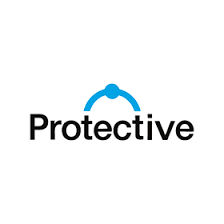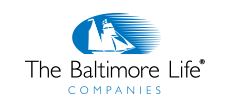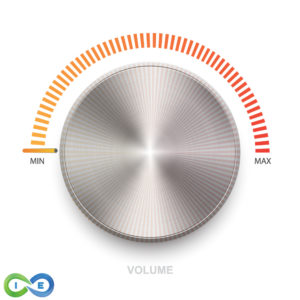The number one danger to building wealth and creating a legacy is death and taxes. The good news is that permanent life insurance provides protection against both. In this comprehensive article, we do a deep dive into life insurance taxation to help you make a more informed decision about how you can best secure your financial future in 2025 and beyond.
Look, nobody enjoys discussing life insurance — it forces us to confront our mortality. But understanding the tax implications of your life insurance policy might be the difference between your beneficiaries receiving the full benefit you intended or losing a significant portion to Uncle Sam. Let’s be honest, that’s not what you’re paying those premiums for.
Where Taxes May Impact Life Insurance Funds
When the insured person on a life insurance policy dies, a lump sum death benefit is typically paid out to the beneficiary(ies) who are named in the policy. These funds are generally received income tax free. But this doesn’t mean that money that comes out of a life insurance policy will never be subject to taxation.
The most common methods for receiving funds from a life insurance policy include:
- Death benefit proceeds
- Cash value withdrawals
- Policy loans
- Living Benefits / Accelerated Death Benefits
Taking a closer look at each of these can help you to see where you (or other recipients) could run into tax issues, as well as strategies for positioning a policy to help reduce or eliminate taxes that may be due.
Life Insurance Death Benefits and Taxation
One of the primary advantages related to life insurance is that the death benefit proceeds are typically received by the beneficiary (or beneficiaries) free of income taxation. That way, the recipient(s) are able to use 100% of the insurance protection for various needs.
According to recent market research, approximately 51% of Americans own at least one life insurance policy, with 42% either uninsured or underinsured, representing a significant need-gap of 102 million adults. In 2023, life insurance claims totaled $831.9 billion, including death benefits, annuity benefits, and other payouts, reflecting a steady increase from previous years.
When Are Life Insurance Death Benefits Taxable?
There are actually several possible scenarios where life insurance benefits could be taxed. First, most life insurance carriers offer beneficiaries different methods of receiving death benefit proceeds. For instance, in lieu of a single lump sum payout, a beneficiary may instead opt to take their funds as:
- Installment payments
- An annuity
- A retained asset account
With installment payments and the annuity option, the death benefit proceeds and accumulated interest are paid out on a regular basis, either for a set period of time – usually anywhere between five and forty years – or even for the remainder of the recipient’s lifetime, no matter how long that may be.
If the recipient is in or near retirement, the guaranteed stream of lifetime income can help to alleviate one of the biggest fears on the minds of many people today – running out of money while it is still needed.
In the case of installment and annuity payments, any interest that is received by the recipient will be taxed as ordinary income, whereas the funds that are considered to be a return of the initial death benefit proceeds will be tax-free.
A different option for receiving proceeds from a life insurance policy is via a retained asset account. For example, some insurance companies offer beneficiaries a “checkbook,” rather than paying out a single lump sum of cash or installment payments.
Checks may then be written against the balance of the account. Although deposits may not be made into a retained asset account, the funds that are inside can generate interest.
So, funds that are accessed by the beneficiary that represent interest or gain will be taxable at the recipient’s ordinary income tax rate (and funds that represent receipt of the initial death benefit will not be taxable).
Understanding the Tax Code: Sections 7702 and 101
Look, I know tax code isn’t exactly thrilling bedtime reading, but two specific sections form the foundation of all those tax benefits I’ve been talking about. Without these provisions, life insurance wouldn’t have its unique tax advantages.
Section 101: Why Death Benefits Are Income Tax-Free
When your beneficiaries receive your life insurance payout, they can thank Section 101 of the tax code. This is the provision that explicitly states death benefits paid “by reason of the death of the insured” are not included in gross income and therefore aren’t subject to income tax.
Section 101 is what allows your loved ones to receive your entire death benefit without Uncle Sam taking a bite out of it. There are exceptions (like the transfer-for-value rule and certain employer-owned policies), but for most people, this tax-free treatment is absolute.
Section 7702: What Makes a Policy “Life Insurance” in the Eyes of the IRS
Ever wonder why there are limits on how much you can put into a cash value policy? That’s where Section 7702 comes in. Established in 1984, this section defines what constitutes a “life insurance contract” for tax purposes.
To qualify for 7702 tax benefits, your policy must pass either:
- The Cash Value Accumulation Test (CVAT) – ensuring your cash value never exceeds what’s needed to fund your future benefits, or
- The Guideline Premium and Corridor Test (GPCT) – limiting premiums while requiring a minimum death benefit in relation to cash value
If your policy doesn’t meet these requirements, it loses its favorable tax treatment. This prevents people from dumping unlimited funds into life insurance purely as a tax shelter while still allowing legitimate life insurance to enjoy tax advantages.
Why These Tax Code Sections Matter to You
Understanding these provisions isn’t just academic – they have practical implications for your financial planning:
- They provide assurance that the tax benefits of life insurance are firmly established in law, not just insurance company marketing
- They explain why there are limitations on policy contributions and structure
- They highlight why proper policy design is crucial to maximize tax advantages
- They underscore why tax-free policy exchanges (discussed earlier) are such a valuable provision
These tax code sections create the framework for everything we’ve discussed about life insurance taxation. While the details may seem technical, the benefits they provide are very real for policyholders and their families.
Estate Taxes and Life Insurance
It is important to note that while the lump sum death benefit from a life insurance policy is received free of income taxation, it could be subject to estate tax if the funds are included as part of your taxable estate.
According to the IRS, the value of life insurance proceeds will be included in your gross estate if the proceeds are payable to:
- Your estate – either directly or indirectly, or
- A named beneficiary (or beneficiaries), if you possessed any incidence of ownership of the policy at the time of your passing
2025 Federal Estate Tax Exemption and Rates
The Tax Cuts and Jobs Act of 2017 dramatically increased the federal estate tax exemption. Here’s what you need to know for 2025:
- Individual exemption: $13.99 million (up from $12.92 million in 2023)
- Married couples: $27.98 million combined (with proper planning)
- Tax rate: 40% on amounts exceeding the exemption
- Annual gift exclusion: $19,000 per recipient in 2025
Unless Congress takes action, these higher exemption amounts are scheduled to “sunset” in 2026, reverting to approximately half their current levels. This pending change has created significant interest in proactive estate planning using life insurance strategies.
States With An Estate Tax
Depending on where you reside, it is possible that your estate – including the value of any life insurance proceeds that are included in it – may also be subject to state estate tax, too.
In addition to the District of Columbia, the following states impose estate and/or inheritance taxes:
- Connecticut
- Hawaii
- Illinois
- Maine
- Maryland
- Massachusetts
- Minnesota
- New York
- Oregon
- Rhode Island
- Vermont
- Washington
If you do have an estate that exceeds the exemption amount, and you are not passing your assets along to a spouse (because you are single or your spouse has pre-deceased you), then your assets – and essentially, your loved ones – could face a federal estate tax of up to 40%.
Estate Tax Exemption Amounts Over Time in the U.S.
| Period | Amount of Exemption |
|---|---|
| 1977 (Quarters 1 and 2) | $30,000 |
| 1977 (Quarters 3 and 4) | $120,667 |
| 1978 | $134,000 |
| 1979 | $147,333 |
| 1980 | $161,563 |
| 1981 | $175,625 |
| 1982 | $225,000 |
| 1983 | $275,000 |
| 1984 | $325,000 |
| 1985 | $400,000 |
| 1986 | $500,000 |
| 1987 – 1997 | $600,000 |
| 1998 | $625,000 |
| 1999 | $650,000 |
| 2000 – 2001 | $675,000 |
| 2002 – 2010 | $1,000,000 |
| 2011 | $5,000,000 |
| 2012 | $5,120,000 |
| 2013 | $5,250,000 |
| 2014 | $5,340,000 |
| 2015 | $5,430,000 |
| 2016 | $5,450,000 |
| 2017 | $5,490,000 |
| 2018 | $11,180,000 |
| 2019 | $11,400,000 |
| 2020 | $11,580,000 |
| 2021 | $11,700,000 |
| 2022 | $12,060,000 |
Cash Value Life Insurance and Taxation
Cash Value Withdrawals
In a permanent life insurance policy – which can include whole life, universal life, variable life, variable universal life, and indexed universal life coverage – the cash value is allowed to grow on a tax-deferred basis. This means that there is no tax due on the gain that takes place unless or until it is withdrawn.
The tax-advantaged nature of life insurance cash value can allow the opportunity for the funds to grow and compound exponentially compared to a fully taxable account – especially over a long period of time. This is because a return can be generated on the principal, as well as on the previous growth, and on the funds that otherwise would have been paid out in taxes.
For this reason, there are some individuals who purchase cash value life insurance not so much for the death benefit that it can provide, but because they have already “maxed out” the annual funding limit on tax-advantaged IRAs (Individual Retirement Accounts) and/or employer-sponsored retirement plans, and they want the opportunity to contribute and grow additional funds.
In addition to paying taxes on the gains if you withdraw money from the cash value component, though, it is also possible that you could incur a surrender, or early withdrawal charge from the life insurance policy if you cancel the policy, or if you withdraw more than an annual maximum allowable amount of cash value – oftentimes 10% – in any given year during the surrender charge period.
The surrender charge is usually used by the life insurance carrier to cover the costs of the coverage when it was on the insurer’s books. The percentage of the charge will typically be reduced over time, until it eventually disappears. And certain specially designed dividend paying whole life policies do not have surrender charges.
In addition to possibly paying a surrender charge, if you make withdrawals from a life insurance policy’s cash value before you have turned age 59 ½, you could also incur an additional IRS early withdrawal penalty of 10%. This is in addition to any taxes and/or surrender charges that are due.
With that in mind, withdrawing funds from the cash value component should typically only be considered as a last resort – at least during the early years of the policy. Otherwise, you could end up netting out only about half of what you remove from the plan. Therefore, permanent life insurance should typically be considered as a longer-term financial commitment.
Life Insurance Policy Loans
Rather than taking out taxable withdrawals from the cash value component of a life insurance policy, there is an alternative for accessing funds tax free. This is through a tax-free life insurance policy loan.
In addition to accessing funds tax-free through a life insurance policy loan, there are some other enticing benefits that can also come along with using this strategy. For instance, you are not technically borrowing funds from the policy’s cash value, but rather using the money as collateral for a loan from the insurance carrier.
Because of that, interest on all of the cash value can still continue to accumulate tax-deferred. As an example, if the cash value of the policy is valued at $100,000 and you take out a $20,000 loan, the cash value will still earn interest on the full $100,000, providing true uninterrupted compound interest growth.
In addition, even though interest will accrue on the unpaid balance of the policy loan, these funds do not necessarily have to be repaid – at least not during the insured’s lifetime. In this case, if the insured passes away while there is still an outstanding loan balance, it will be paid using the death benefit proceeds. Then, the remainder of the death benefit will be paid out to the beneficiary(ies).
Living Benefits / Accelerated Death Benefits on Life Insurance Policies
Some life insurance policies offer “living benefits.” These can allow you to withdraw funds from the policy’s death benefit while you are still alive and use them for various healthcare or long-term care expenses.
Life insurance living benefits are usually added through an accelerated death benefit rider. Depending on the policy, there may or may not be an additional premium charge for this. Some common living benefit riders include the:
- Terminal illness rider. In order to qualify for this, the insured must have been diagnosed with a terminal illness and have a life expectancy of between 6 to 24 months, depending on the policy and the insurance carrier.
- Chronic illness rider. If the insured is unable to perform certain daily living activities – such as dressing or bathing – on his or her own, then they may be able to access funds if the policy includes a chronic illness rider.
- Critical illness rider. If the insured has a critical illness – such as kidney failure, stroke, or cancer – then they may qualify for living benefits through a critical illness rider.
- Long-term care rider. If the insured requires qualifying long-term care services, then they may be allowed to access accelerated death benefits via a long-term care rider.
Typically, accelerated death benefits are not taxed as income to the recipient. In addition, policies will usually have limits imposed on how much of the death benefit may be accessed as living benefits, such as 50% or 75% of the total.
It is also important to note that accessing funds from the death benefit will reduce the amount of proceeds that are ultimately paid out to the beneficiary(ies) upon the insured’s passing. So, if receiving less will create a financial hardship for survivors, the living benefit option may not be a good financial move.
Avoiding Estate Taxes on Life Insurance
If your loved ones will owe estate taxes upon your passing, whether or not the value of a life insurance policy is included in the taxable estate is dependent on how the coverage is owned.
For instance, if you are the owner and the insured, then the amount of the proceeds will be considered a part of your overall estate, and as such, will be included when determining how much estate tax is owed.
Irrevocable Life Insurance Trusts (ILITs)
In order to keep these funds from being included in your overall estate value, it will be necessary to transfer the ownership to another person or entity. One strategy that is oftentimes used is placing the policy’s ownership with an irrevocable life insurance trust, or ILIT.
With an irrevocable trust, the terms may not be modified, amended, or terminated without the permission of the beneficiary(ies). This is in contrast to a revocable trust, whereby the grantor may make changes – or even cancel the trust altogether – but the assets inside of the trust are still considered in his or her overall estate value for tax purposes.
A life insurance policy that is already in force may be placed into the irrevocable life insurance trust. Alternatively, the ILIT trust may purchase a new policy, with the ILIT as the owner of the coverage.
Upon the death of the insured, the proceeds from the life insurance policy are paid to the trust. (The trust document of the ILIT will generally include the provisions for how the funds from the policy are to be used).
For instance, some or all of the money could be used for paying any taxes that are due on the remainder of the insured’s estate. Similarly, the life insurance proceeds may also be used for replacing assets that are used for the payment of the estate taxes.
Some items to be mindful of when you change the ownership of a life insurance policy include:
- The inability for you to make any changes to the policy in the future
- The new owner must continue to pay the premiums on the policy
- The competency / knowledge of the new owner regarding life insurance and other financial matters
Market Trends in Life Insurance Taxation (2023-2025)
Recent market research shows some interesting developments in how Americans approach life insurance and its tax benefits:
- Approximately one-third of consumers remain unaware of the tax benefits of life insurance, according to industry studies.
- Middle-income earners ($50,000-$149,999 annually) show significant interest in life insurance, with 39% reporting a need for more coverage.
- There’s increased demand for permanent life insurance among Gen Z (72% ownership).
- Rising interest in using life insurance as an inheritance strategy among households with negative wealth.
With the scheduled sunset of higher estate tax exemptions in 2026, we’ve seen a dramatic increase in clients using life insurance planning strategies to prepare for potential tax changes. This is especially true for estates valued between $7 million and $15 million, which could suddenly become taxable if Congress doesn’t extend the current exemption levels.
Employer-Paid Group Life Insurance Taxation
Another scenario where life insurance becomes taxable involves employer-provided coverage. According to IRS regulations, employer-paid group life insurance exceeding $50,000 in coverage results in taxable “imputed income” for the employee. This often comes as a surprise to employees who assume all workplace benefits are tax-free.
The calculation for this imputed income is based on IRS Table I rates, which consider the employee’s age and the amount of coverage exceeding $50,000. For executives with substantial employer-provided coverage, this can result in significant taxable income even though no actual cash changes hands.
Modified Endowment Contracts (MECs)
In some cases, a life insurance policy could lose its tax-advantaged status if it becomes a Modified Endowment Contract, or MEC. A modified endowment contract is a designation that is given to cash value life insurance contracts that have exceeded legal tax limits. The MEC rules stem from IRC Section 7702A that prevents excessive funding of life insurance policies. But don’t worry – your insurance company monitors this and will warn you before you accidentally cross that line.
If the IRS re-labels a life insurance contract as a MEC, it removes the tax benefits of withdrawals that you can make from the policy. This can happen if you “overfund,” or pay too much in premiums in too short a period of time.
With MECs, withdrawals are taxed on a “last-in-first-out” (LIFO) basis, meaning the growth comes out first and is taxable as ordinary income. Additionally, if you’re under 59½, you’ll face that additional 10% tax penalty on the gain portion. This significantly reduces the flexibility of accessing your cash value.
Tax-Free 1035 Exchanges
One powerful tax advantage of life insurance that many people overlook is the ability to exchange one policy for another without triggering tax consequences. This is known as a 1035 exchange, named after the section of the Internal Revenue Code that permits it.
Think of a 1035 exchange for life insurance as upgrading your financial vehicle while keeping all the tax benefits intact. According to recent industry data, approximately 18% of permanent life insurance policyholders have executed a 1035 exchange in the past decade, with activity increasing by 23% between 2022-2024.
When Does a 1035 Exchange Make Sense?
There are several scenarios where a 1035 exchange might be beneficial:
- Your current policy has underperforming interest rates
- You’ve found a policy with better features or riders
- Your original insurance carrier’s financial strength has declined
- You want to consolidate multiple policies
- You need different coverage amounts as your situation has changed
- New product innovations offer better options than when you purchased your policy
The primary benefit is clear: you can transfer your accumulated cash value without paying taxes on any growth above your cost basis that would normally be taxable if you simply surrendered the policy.
Case Study: Tax-Efficient Life Insurance Strategy
Let me share a recent client situation that illustrates how strategic life insurance planning can address taxation concerns:
A business owner in her mid-50s had accumulated significant wealth (approximately $20 million) and was concerned about estate taxes impacting her children’s inheritance, especially with the scheduled 2026 sunset of higher exemptions. She already had a $2 million term policy but wanted a more comprehensive solution.
Our approach included:
- Establishing an ILIT to own a new $10 million permanent life insurance policy
- Utilizing her annual gift tax exclusion to fund premium payments to the trust
- Structuring the trust to provide income to her spouse if needed, while preserving the bulk of assets for children
- Including provisions for accessing living benefits tax-free if long-term care needs arose
The result: Upon her eventual passing, her heirs will receive the $10 million death benefit entirely free of income and estate taxes, regardless of future tax law changes. The policy’s cash value also provides a tax-advantaged asset that can be accessed through policy loans if needed during retirement.
Frequently Asked Questions About Life Insurance Taxation
Are Life Insurance Funds Taxable?
They could be – depending on how they are accessed!
While people don’t typically enjoy discussing life insurance – because it can remind you of your mortality – the reality is that this flexible financial vehicle can be an integral part of most any complete retirement or estate plan. There are literally endless reasons why people may purchase life insurance coverage, such as debt payoff and income replacement for survivors when the insured passes away.
But what many don’t realize is that life insurance can also be beneficial in many ways while the insured is still alive. For instance, funds in certain types of policies could be used for supplementing retirement income, making high ticket purchases, or paying off higher-interest debts such as credit card balances.
In any case, though, it is important to understand the tax treatment of life insurance proceeds, as well as the cash value in permanent policies. Otherwise, you could end up handing over a sizeable portion of the funds to the IRS.
Can I Deduct Life Insurance Premiums From My Taxes?
For most individuals, life insurance premiums are not tax-deductible. However, there are specific business situations where premium payments may qualify as deductible expenses:
- Businesses paying premiums for employees (as a business expense)
- Self-employed individuals covering spouse who is a legitimate business employee
- Premiums paid by qualified charitable organizations on a donor’s policy when the organization is the beneficiary
Always consult with a tax professional regarding your specific situation, as tax laws frequently change and individual circumstances vary significantly.
How Can I Confirm My Policy Won’t Become a MEC?
When establishing a permanent life insurance policy, work with an experienced agent who understands the “7-pay test” and other IRS requirements that determine MEC status. Request periodic in-force illustrations to ensure your premium payments won’t inadvertently trigger MEC classification. If considering large additional premium payments, always consult with your advisor first.
Are You and Your Loved Ones Protected from Life Insurance Taxation?
Life insurance is an essential component of most any complete financial plan. But not all life insurance policies are exactly the same. So, before you commit to purchasing one, it is important that you first have a good understanding of what your objectives are, and then determine which type of policy will work the best for you and your specific needs.
In addition to just the death benefit protection, life insurance can provide you and/or your loved ones with many tax-related advantages, too. These can include income tax free receipt of the death proceeds, along with tax-deferred growth of the cash value (on permanent policies).
But oftentimes when the IRS provides enticing benefits, it will also take something away. For instance, there are various situations where life insurance proceeds could be taxable – such as estate taxes.
Likewise, the withdrawal of cash value from permanent life insurance policies could be taxable – and could also be grounds for additional surrender charges from the insurance carrier, as well as a 10% early withdrawal penalty from the IRS if you are under the age of 59 ½ when you make such withdrawals.
With all of that in mind, working with a life insurance specialist can be extremely beneficial in putting the right type and amount of protection in place for you – as well as creating an overall plan that could benefit you and your loved ones, both during your lifetime and afterwards.
Conclusion: Making Life Insurance Work for Your Tax Situation
As we’ve seen throughout this article, life insurance offers remarkable tax advantages when structured properly. With the pending sunset of higher estate tax exemptions in 2026, now is an ideal time to review your coverage and ownership arrangements to maximize these benefits.
Here’s what to remember:
- Death benefits are generally income tax-free to beneficiaries
- Consider ILIT ownership to avoid estate taxation
- Policy loans offer tax-free access to cash value
- Living benefits provide tax advantages for healthcare needs
- Avoid MEC status to maintain favorable tax treatment
At Insurance and Estates, we have experts available who can answer all of your questions about life insurance taxes and walk you through various scenarios in order to narrow down which type of coverage – if any – may be right for you.
So, feel free to contact us for a no-cost, no-obligation chat. You can reach us by phone at (877) 787-7558 or you can send us an email with any questions that you may have by going to info@insuranceandestates.com.








